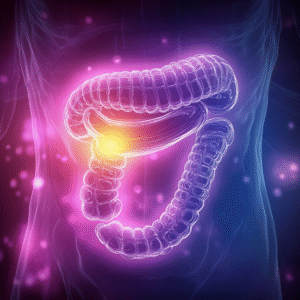For decades, science has sought to understand the true origin of cancer — a disease that defies easy answers. While we know that cancer is the result of genetic mutations and cellular dysregulation, a growing body of research suggests that the mind may play a far more significant role than previously believed. Could psychological and emotional states contribute to the onset or progression of cancer? And if so, what does this mean for prevention, treatment, and healing?
Understanding the Biological Roots of Cancer
Cancer begins when certain cells in the body mutate and multiply uncontrollably, forming malignant tumors. These mutations are often triggered by external and internal factors, such as:
- Environmental exposures – UV radiation, pollution, toxic chemicals, and carcinogens.
- Lifestyle factors – smoking, alcohol abuse, poor diet, lack of physical activity.
- Genetic predisposition – inherited mutations in genes like BRCA1/BRCA2.
- Aging – as we grow older, cells accumulate damage, and risk increases.
While these factors are well-established, they don’t fully explain why some individuals exposed to the same conditions develop cancer while others do not. This is where psychological contributors deserve closer attention.
The Immune System: The First Line of Defense
What many forget is that cancerous cells naturally appear in every human body — even in healthy individuals. Normally, the immune system recognizes and eliminates these cells before they become a threat. But when the immune system is weakened or dysregulated, it can fail to keep malignant cells in check.
This leads to a critical question: What weakens the immune system? The answer is not only biological but also psychological.
The Role of Chronic Stress and Emotional Suppression
Emerging research in psychoneuroimmunology — the study of how psychological states affect the immune system — shows that chronic stress, emotional trauma, and unresolved grief can compromise immune function and increase vulnerability to diseases like cancer.
Key psychological contributors may include:
- Prolonged psychological stress – work burnout, caregiver fatigue, or long-term conflict can lead to hormonal imbalances (e.g., elevated cortisol), which suppress immune surveillance.
- Emotional repression – individuals who habitually suppress emotions like anger, sadness, or fear may internalize emotional toxicity, which some studies suggest could influence cancer risk.
- Trauma and loss – significant life events such as divorce, abuse, the death of a loved one, or childhood neglect are associated with higher disease incidence later in life.
- Depression and anxiety – long-term mental health struggles correlate with decreased immune resilience and chronic inflammation.
These psychological burdens often create a state of chronic low-grade inflammation, which is now recognized as a common pathway in many diseases, including cancer.
Mindset, Identity, and the Will to Live
Beyond stress and trauma, deep existential factors can also play a role. Some practitioners and researchers argue that a loss of meaning in life, unresolved identity conflicts, or a perceived lack of control may contribute to illness.
Patients with cancer often describe their diagnosis as a turning point, sometimes preceded by years of emotional numbness, spiritual disconnection, or extreme self-neglect. In many integrative oncology settings, restoring a sense of purpose, joy, and agency is seen as vital to recovery.
Scientific Studies and Observations
While it’s important to note that psychological factors are not direct causes of cancer, there is mounting evidence that they influence both susceptibility and progression:
- A study published in The Lancet Oncology found that individuals with post-traumatic stress disorder had higher risks of developing cancer-related complications.
- In a meta-analysis in Psychological Bulletin, researchers found significant associations between chronic stress and cancer progression, particularly in breast and colorectal cancers.
- A 10-year follow-up study from Germany showed that women with emotional suppression traits had a statistically higher incidence of cancer diagnosis compared to those who expressed emotions freely.
While correlation does not imply causation, these trends warrant attention and integration into a more holistic model of care.
The Holistic View: Healing the Body by Healing the Mind
Integrative cancer clinics around the world now acknowledge the power of psychological well-being in both prevention and healing. Practices such as:
- Psychotherapy and trauma work
- Mindfulness-based stress reduction (MBSR)
- Guided imagery and visualization
- Art therapy, journaling, and expressive practices
- Group support and connection
These tools help patients reduce anxiety, express long-buried emotions, and cultivate inner peace — all of which can support immune function, reduce inflammation, and foster resilience during treatment.
What This Means for You
- If you are healthy: Take your emotional well-being as seriously as your diet or exercise. Unresolved stress, grief, or bitterness may not cause cancer directly, but they create internal conditions that can tip the scales.
- If you are battling cancer: Healing is not just medical — it’s emotional, psychological, and spiritual. Addressing past trauma, seeking support, and practicing compassion toward yourself may significantly improve your quality of life and perhaps your prognosis.
- If you support someone with cancer: Encourage open conversations about feelings, listen without judgment, and understand that what’s unspoken may weigh heavier than what’s seen.
Conclusion: The Mind–Body Link Deserves Respect, Not Dismissal
While psychological factors are not the sole cause of cancer, they are a vital piece of the puzzle. In the age of advanced diagnostics and targeted therapies, let’s not forget the human behind the disease — with a lifetime of memories, emotional wounds, and unmet needs.
True healing, perhaps, begins where medicine ends — in the quiet restoration of inner peace, purpose, and connection.


